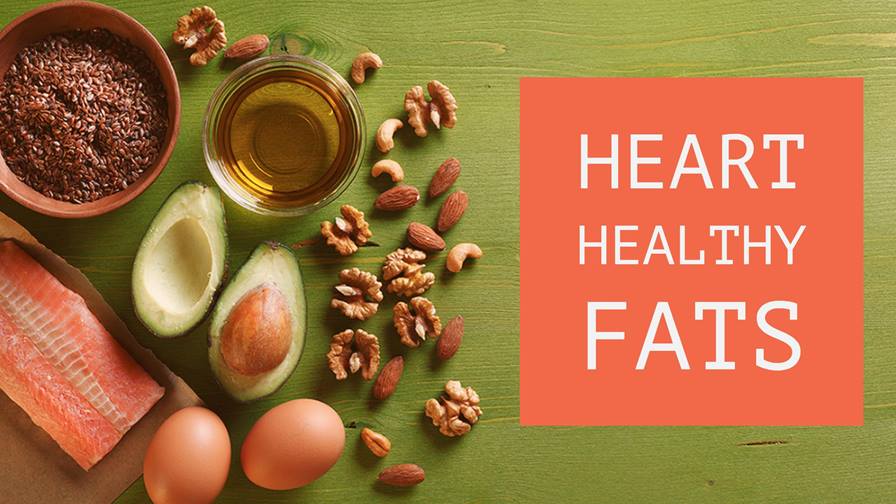The Mediterranean diet has gained significant attention in recent years for its numerous health benefits, particularly in lowering cholesterol levels and promoting heart health. This eating pattern, inspired by the traditional dietary habits of Mediterranean countries, emphasizes the consumption of heart-healthy fats, omega-3 fatty acids, fiber-rich foods, and antioxidant-packed fruits and vegetables. By adopting a Mediterranean diet, individuals can take proactive steps to manage their cholesterol levels and reduce the risk of heart disease. In this article, we will explore five helpful pieces of information about the benefits of a Mediterranean diet for lowering cholesterol.
1, Heart-Healthy Fats.
The Mediterranean diet is known for promoting heart health, and one of its key features is the emphasis on consuming healthy fats, specifically monounsaturated fats. These fats are found in foods such as olive oil, nuts, and avocados.
Monounsaturated fats have been shown to have several benefits for heart health. They can help increase the levels of high-density lipoprotein (HDL) cholesterol, commonly referred to as "good" cholesterol, while reducing low-density lipoprotein (LDL) cholesterol and triglycerides, which are considered detrimental to heart health.
HDL cholesterol helps remove LDL cholesterol from the arteries, preventing the buildup of plaque that can lead to heart disease. By increasing HDL levels and reducing LDL and triglyceride levels, monounsaturated fats contribute to a healthier lipid profile and can help lower the risk of cardiovascular diseases.
Incorporating olive oil as the primary source of fat in cooking, using nuts and seeds as snacks or toppings, and including avocados in meals are some ways to include these heart-healthy monounsaturated fats in your diet. It is important to remember, however, that while these fats have health benefits, they should still be consumed in moderation, as they are high in calories. Balancing fat intake with overall calorie consumption is crucial for maintaining a healthy weight and promoting cardiovascular health.
2, Abundance of Omega-3 Fatty Acids.
The Mediterranean diet is known for its abundance of foods rich in omega-3 fatty acids, which offer various health benefits, particularly for heart health. Omega-3 fatty acids are a type of polyunsaturated fat that has been extensively studied for their positive effects on cardiovascular health.
Fatty fish, such as salmon, mackerel, sardines, and trout, are excellent sources of omega-3 fatty acids. These fatty acids have been shown to lower levels of LDL cholesterol and triglycerides, reduce blood pressure, decrease inflammation, and help prevent the formation of blood clots. All of these factors contribute to a reduced risk of heart disease.
The American Heart Association recommends consuming fish at least twice a week to obtain sufficient amounts of omega-3 fatty acids. In the Mediterranean diet, fish is often a centerpiece of meals and is typically prepared using healthy cooking methods such as grilling or baking rather than deep-frying.
For individuals who don't consume fish, other sources of omega-3 fatty acids in the Mediterranean diet include walnuts, flaxseeds, chia seeds, and hemp seeds. These plant-based sources provide a different type of omega-3 fatty acid called alpha-linolenic acid (ALA), which the body can convert to EPA and DHA, the active forms of omega-3s.
By incorporating fatty fish and plant-based sources of omega-3s into the Mediterranean diet, individuals can reap the benefits of these heart-healthy fats and help reduce their risk of cardiovascular disease.
3, Fiber-Rich Foods.
The Mediterranean diet places a strong emphasis on consuming fiber-rich foods, which offer numerous health benefits, including cholesterol management. Fiber is a type of carbohydrate that cannot be digested by the body, but it plays a crucial role in maintaining good health.
The soluble fiber found in whole grains, legumes (such as beans, lentils, and chickpeas), fruits, and vegetables is particularly beneficial for managing cholesterol levels. Soluble fiber forms a gel-like substance in the digestive tract that binds to cholesterol, preventing its absorption into the bloodstream. As a result, soluble fiber helps reduce levels of LDL cholesterol, the "bad" cholesterol associated with an increased risk of heart disease.
Whole grains, such as whole wheat, brown rice, quinoa, and oats, are excellent sources of dietary fiber. Including these whole grains in the diet can help increase fiber intake and promote heart health. Legumes, including beans, lentils, and chickpeas, are also rich in fiber and can be added to salads, soups, stews, or used as a meat substitute in various dishes.
Additionally, fruits and vegetables are not only rich in fiber but also packed with other heart-healthy nutrients and antioxidants. Including a variety of colorful fruits and vegetables in your diet ensures an adequate intake of dietary fiber while providing a range of beneficial vitamins and minerals.
By incorporating fiber-rich foods into the Mediterranean diet, individuals can effectively manage their cholesterol levels and reduce their risk of cardiovascular disease. It is recommended to consume a diverse range of fiber sources and aim for the daily recommended intake of fiber, which is around 25 grams for women and 38 grams for men.
4, Antioxidant-Rich Foods.
The Mediterranean diet is renowned for its abundance of antioxidant-rich foods, which play a vital role in promoting heart health. Antioxidants are compounds that help protect the body against oxidative stress, which can lead to chronic inflammation and damage to cells and tissues. This oxidative stress has been linked to an increased risk of heart disease and elevated cholesterol levels.
Fruits and vegetables are key components of the Mediterranean diet and are excellent sources of antioxidants. Berries, such as blueberries, strawberries, and raspberries, are particularly rich in antioxidants like anthocyanins. Other fruits and vegetables, including tomatoes, spinach, kale, broccoli, bell peppers, and oranges, are packed with various antioxidants such as vitamin C, vitamin E, and carotenoids.
In addition to fruits and vegetables, the Mediterranean diet incorporates herbs and spices that are known for their antioxidant properties. Garlic, oregano, basil, turmeric, and rosemary are commonly used in Mediterranean cuisine and provide additional antioxidant benefits. These herbs and spices not only enhance the flavor of dishes but also contribute to the overall antioxidant content of the diet.
By consuming a wide variety of antioxidant-rich foods, individuals following the Mediterranean diet can help reduce oxidative stress, combat inflammation, and promote cardiovascular health. These antioxidant compounds work synergistically with other beneficial components of the diet, such as fiber, monounsaturated fats, and omega-3 fatty acids, to provide comprehensive heart protection.
5, Limited Red Meat and Processed Foods.
The Mediterranean diet encourages the consumption of lean sources of protein, such as poultry, fish, and plant-based proteins, while minimizing the intake of red meat and processed foods. This approach can have positive effects on cholesterol levels, specifically by reducing the consumption of saturated and trans fats.
Red meat, particularly fatty cuts, is a significant source of saturated fats in the diet. High intake of saturated fats has been linked to elevated levels of LDL cholesterol, which is associated with an increased risk of heart disease. By limiting the consumption of red meat, individuals following the Mediterranean diet can effectively reduce their intake of saturated fats and promote better heart health.
Processed foods, such as fast food, packaged snacks, and fried foods, often contain unhealthy fats, including trans fats. Trans fats are formed through the process of hydrogenation, which makes them more shelf-stable but also detrimental to heart health. Trans fats not only raise LDL cholesterol levels but also lower levels of HDL cholesterol, the "good" cholesterol that helps protect against heart disease. By minimizing the intake of processed foods, individuals can significantly reduce their exposure to trans fats and promote a healthier lipid profile.
Instead, the Mediterranean diet emphasizes lean protein sources like poultry (such as chicken and turkey) and fish, particularly fatty fish rich in omega-3 fatty acids. Plant-based proteins like legumes (beans, lentils, and chickpeas), tofu, and tempeh are also encouraged. These protein sources provide essential nutrients without the high levels of saturated and trans fats found in red meat and processed foods.
By choosing lean protein options and minimizing the consumption of red meat and processed foods, individuals can help manage their cholesterol levels and reduce the risk of heart disease while following the principles of the Mediterranean diet.
In conclusion, the Mediterranean diet offers a powerful tool for individuals looking to lower their cholesterol levels and improve overall heart health. By incorporating heart-healthy fats, omega-3 fatty acids, fiber-rich foods, and antioxidant-packed fruits and vegetables into their daily meals, individuals can make significant strides in managing their cholesterol levels. Moreover, by limiting the intake of red meat and processed foods, this dietary approach further promotes heart health. However, it is crucial to remember that dietary changes should be made in consultation with a healthcare professional or registered dietitian, especially for individuals with specific health concerns. Embracing the principles of the Mediterranean diet can lead to long-term benefits and a healthier lifestyle.



:max_bytes(150000):strip_icc()/eight-antioxidant-rich-foods-0922-2000-ad924d40a11e4f4eaccf99a462e2017b.jpg)

Comments
Post a Comment